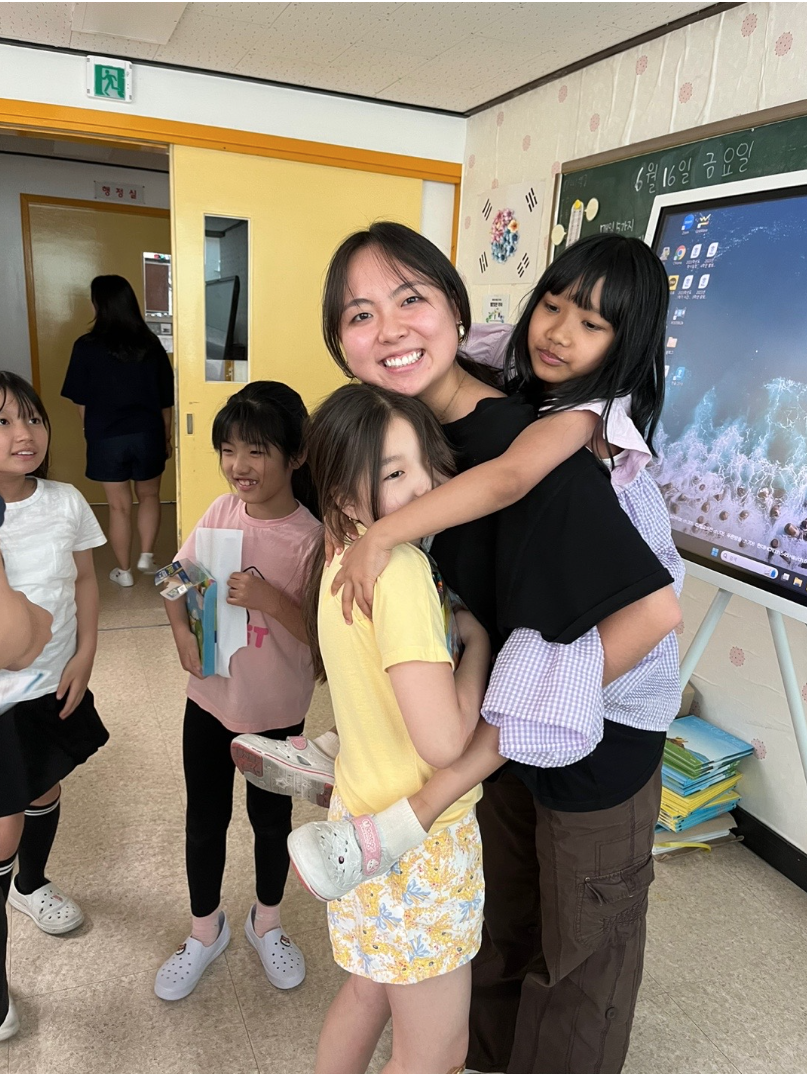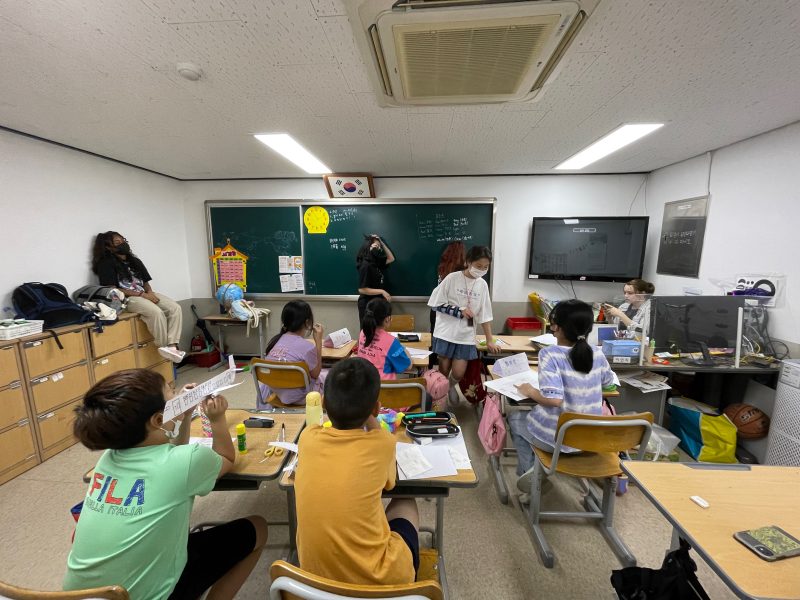3 weeks in, going into the halfway point is absurd to think about. My time in Seoul has flown by yet still comfortably paced and feels like summer. Squeezing through the humid crowds in Gwangjang market and licking the rich tteokbokki sauce from my lips, I felt giddy. In contrast to these high-energy densely populated areas, some of my favorite spots I’ve found are the kind that aren’t on digital map apps. These intimate locations are typically wedged in alleyways within alleyways filled with greenery, and staff who only speak Korean. While slightly more difficult to communicate, the lack of English is sometimes a telltale sign that you’re getting the REAL stuff. Being in a country for an extended period allows you to explore places you otherwise couldn’t and even start point cards for those places near and dear to your heart.
At Jiguchon, we started working with 3rd and 4th graders. Although very quiet initially, they were endearing and greeted us with warm hugs and soft hellos. When you’re an adult, much of the time when you realize someone cannot speak your vernacular, you stop all conversation with words and either give up or find an alternate method. However, these kids, no matter how many times I said I couldn’t speak Korean or answered them with blank stares, they kept trying and they continued to talk to me. Even though I wasn’t a direct part of their conversation, I felt included.
With the middle schoolers, things have been going smoothly outside of one very brief incident. We were playing charades, and a Filipino student acted as me and decided that doing the eye pull was fitting. Initially, I was shocked and my face felt hot as every memory from when I was a kid and didn’t know how to react came flooding back. But regardless of my initial reaction, I had an eye-opening phone call with my mother that helped me realize that even if something may seem extremely problematic to me, that is not necessarily the case here. Even though it’s still wrong to mock someone for their appearance, I realized that the kid probably didn’t understand why and how his actions would affect me and that it was rooted in racism. While racism exists in Korea, it is sometimes in a less direct form as a large majority of the locals are Korean or look Asian. If there is no difference in race in their daily lives outside of the media, racism must feel more foreign than it would in the States where you constantly face people who look different from you. It is a fine line between standing up for myself and being understanding and empathetic toward their cultural norms.
Our group discussion this week was mostly spent talking about an incident from last week. For me, it brought up the question of whether sexual assault is fully preventable. Although pessimistic, no matter how much we try to change and create limits, changing a very long-standing internal caste system in our minds is very difficult. It also frustrated me that everyone that was apologizing was a woman. Our professors, and the organization leaders. Where were the men? Whenever something like this happens, I always boil with anger but no place to put it. How do we stop tolerating the actions that lead up if it’s not obviously wrong?
In an effort to end on a happy note, my friends and I plan to visit a dog cafe today. And, happy Father’s Day!
– Nana Osaki



